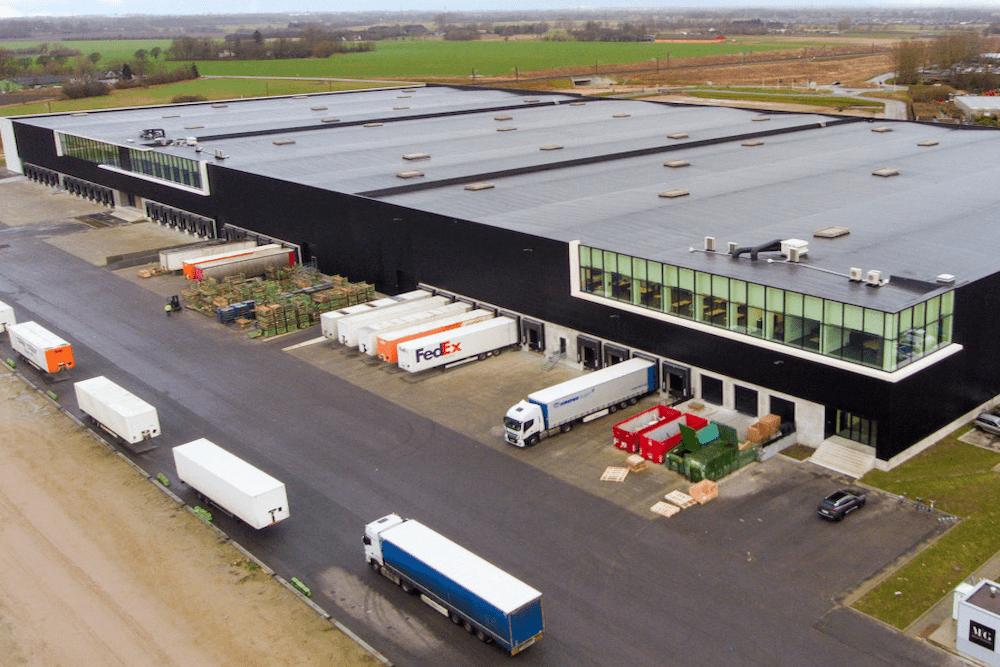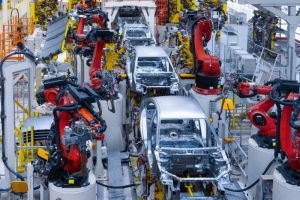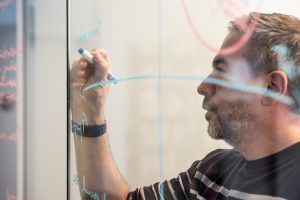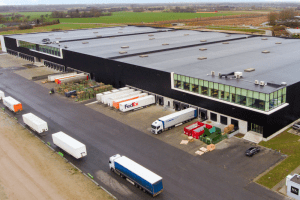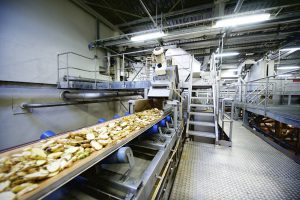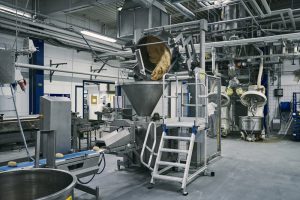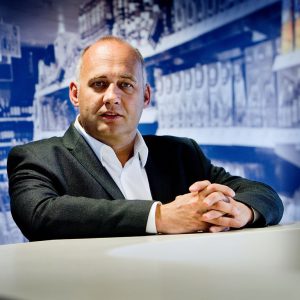
2018Marc Engel
Chief Supply Chain Officer
Unilever
Marc Engel has earned the title of Number 1 (2019) Supply Chain Executive in Europe for the second year in a row, as confirmed by the financial, visibility and peer voting quadrants when comparing his individual results in 2018 versus 2017.
Financially, Unilever registered an increase in both revenue (1.9%) and EBIT (3%) in 2017 compared to 2016. Accordingly, in 2018 Marc’s visibility also increased versus 2017, due to the number of interviews given and conferences attended. Lastly, the peers unanimously awarded Marc the maximum number of points, with him accumulating 15.5% of all awarded votes.
He is an exceptional leader driven by innovation and continuous improvement. He has been Chief Supply Chain Officer at Unilever since February 2016, based in London, UK, and he has a master’s degree in applied physics from the University of Groningen.
Interview
For the second year in a row, Marc Engel has earned the title #1 Supply Chain Executive in Europe. The accolade is awarded annually by Supply Chain Media to a senior supply chain leader within a multinational company who inspires, innovates and succeeds in achieving consistently exceptional results. Engel was appointed Chief Supply Chain Officer and a member of the Unilever Leadership Executive in January 2016 after a career spanning some 25 years with the company. He was pivotal in establishing Unilever’s strategic supplier programme called Partner to Win and led the development and implementation of the transformative Responsible Sourcing, Palm Oil, Paper & Board and Human Rights policies for Unilever. The red thread through his career has been a deep desire to make a difference. “Every Friday I write down what difference I think I made during the past week and if I notice that I haven’t made enough impact, I change my calendar.”
For over a century, Unilever has thrived on a model based on mass production, mass distribution and mass marketing. Looking back, this model and a mission to improve the lives and well-being of consumers, was straightforward. Today’s world is complex, fragmented and consumers are highly informed when making choices about brands and have more options to shop. However, the digitalisation that initiated the disruption of the traditional FMCG market is also likely to play a central part in the metamorphosis of the global giant. Technology is enabling direct engagement between consumers and makers, more distributed and shared manufacturing and precision marketing. To fulfil the hyper-segmented market, Unilever is engaging in new partnerships. “I believe we have to move away from a linear supply chain towards a supply circle in which Unilever is a digital hub in the centre. Traditional functional silos such as Sales, R&D, Marketing and supply chain are being replaced by three overriding processes; demand creation, demand fulfilment and innovation’. Speaking from his office in London, Marc Engel talks about the challenges and what drives him to make a difference. “If you’re not doing a job that you enjoy, it’s unlikely that you’ll excel.”
Can you explain how you arrived in your position?
“It’s been a journey of 25 years, mostly at Unilever but also briefly at Shell. I started my career at Unilever at the Unox meat group in the Netherlands. Since that time, I have worked in Singapore, Scotland, England, Brazil, Switzerland, Kenya and now London. I have had various supply chain roles in factories, distribution, procurement, finance and strategy, and my previous role as General Manager in Kenya was a deliberate move to prepare me for leading Unilever’s supply chain. The experience in Kenya provided me with the opportunity to experience the global supply chain from a market perspective. In the last three years, I have been able to draw on my Africa experience to design a new purpose led, future fit supply chain. I believe there are five things that are important in making a successful career. First, the element of luck. Let’s face it – being in the right place at the right time helps. But I do believe strongly that luck can also be earned. Second, go all in, work hard and deliver results that make a difference. Third, be authentic to your true self and to your purpose. My purpose is to make a difference to the important things that really matter. Fourth, have fun and enjoy what you do. Or change jobs. Life is too short. If you are not doing a job you enjoy, it is highly unlikely that you will excel. Lastly, have a small group of people around you who challenge and support you. They can be from your professional and private life. The important thing is that these are people who you respect for their honest feedback and are committed to your success. As you progress in your career, this group of people becomes more critical to achieve the right balance between being challenged and being supported.”
Who do you confide in?
“I have a few colleagues who have been with Unilever for a long time. And I stay in touch with a number of former Unilever colleagues. I also have a few friends, including one who goes back 40 years and I can call on a couple of external coaches who have helped me over the years. They need to be able to give you the good, the bad and the ugly because otherwise it is like getting a massage. It feels good at the time but doesn’t necessarily help you get better!”
What are the main business challenges facing the supply chain?
“Disruption and discontinuity. Unilever is a fast moving consumer goods business (FMCG) so things move fast. We fully recognise our competitors are also moving fast. In this digitally connected world where the pace is much greater than 10-20 years ago, the fundamentals of business are being disrupted. Over the last couple of years everything has changed. Traditionally, we competed with large established companies. But now each of our 400 brands faces competition from newer, and often local brands, each with a unique proposition. Also, we are dealing with a very different consumer who has more information about the brands at her fingertips. Consumers are becoming much more aware of the positive difference that brands can make to social and environmental issues, and also to the difference they themselves can make through their everyday shopping choices. On top of that, there has been an explosion of different shopping models. Consumers previously went to shops but now they can shop from home via subscriptions, e-commerce, omnichannel, and online to offline. In China for example, ‘WeChat’ is an integrated lifestyle platform which allows consumers to search for the brands, communicate, purchase and pay all on the one platform and has changed the way that products are purchased. It has taken away the ‘purchase decision’ in a shop and drives towards a different replenishment model. As an example, we bought the Dollar Shave Club in 2016. Not only is male grooming booming, we wanted to learn about the direct to consumer model. Unilever has 200,000 fulfilment points worldwide and the Dollar Shave Club has 3.9 million monthly American subscribers. The notion of transacting directly with consumers and the learnings gleaned from our Dollar Shave Club experience has helped us to shape other direct to consumer platforms. It is very clear that supply chains are very much at the heart of these business models.”
How do you see the supply chain changing to accommodate this new environment?
“With the ever-increasing complexity of our business, in manufacturing, we are looking at partnerships that enable us to leverage our scale or increase our agility, depending on the agenda.”
Is outsourcing likely to be the way forward?
“It isn’t either or. We are incredibly clear about when it is or when it is not the best model. We have developed a central team to identify and manage supply chain third party partnerships. In our experience, deep and truly collaborative partnerships have resulted in innovative and impactful solutions. But of course, we have some great factories of our own.”
